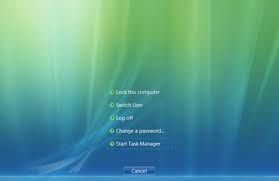Or, they would have been had it not been for Twitter. How cool to show up in a gathering place with people you have never physically met before, and have them excited to see you? How cool to finally connect with people in longer than 140 characters or in the same physical space? I honestly don't have words to describe the feeling of community and camaraderie when I showed up to the #wiamigos tweetup. I got to meet such amazing administrators and educators such as Jason Bretzmann, John Gunnell, Tom and Leah Whitford, Joe Sanfelippo, Curt Rees and several others.
Well, that was just the first night - I hadn't even been to any sessions yet!
The next day, I attended a short session on gaming and learned about how the GLS at Madison has free curriculum for game design. How cool! I also learned a bit about cloud servers, so there's that too.
As for concurrents, I attended a session about personalized learning (one of my big passions) and found it to be something that CESA 1 has committed a lot of time and resources, and are trying to network out. They had a lot of research to support what personalized learning can do. They also shared this cool honeycomb graphic about the pillars of personalized learning - see here.
My next session was about technology and media effects on the brain. HOLY COW! Crazy info there. The highlights included:
- Kids who have a TV in their room have a higher rate of lower grades, higher rate of obesity,
- The brain processes images 60,000 times faster than text. In essence, we are all visual learners!
- Screen time (Non-educational) should be limited to 1 hr for kids between 3 and 14 years old.
- Multi-tasking is a myth. The brain is basically a single core processor. We can switch, but more switching equals less chance for info to move from short to long term memory.
- Young people read screens in an "F" pattern, so we need to give serious though to redesigning any things we want them to read.
- Retention of vocab when paired with pictures is very high.
After that, I enjoyed some great time with my team from Denmark, WI and owned trivia at Damon's!
This morning, I attended an awesome session on MinecraftEDU by Rachel and Tom Hartley. They demoed the amazing things students are doing, gave very real explanations for how it would probably work out for us, and showed us how to run the servers on our own. Was very informative and would be helpful in any argument to purchase this for labs in the district.
Before the keynote, there was one more concurrent. I got to present! I talked about personalized learning, which I have blogged about previously. It was an incredibly rewarding experience, with a multitude of kind comments at the end. The biggest mission I had was to share practical ways all teachers could get started with personalized learning in their own practice. Personalized learning is certainly not easy, but it takes advantage of the technology and can really make a difference in academic and class culture. My presentation resources can be found here.
Kathy Schrock was the keynote, and it was a whirlwind of tech tools, tips, and examples of how powerful storytelling is for the classroom and the amazing examples of teachers using storytelling in powerful ways. I must say, I really want to use Audioboo and Tellagami more than ever now!
Sadly, all good things must come to an end. And that is where the hard work begins. We've learned. We've been inspired. Now the task is to bring this back to my district and make an impact for the students in Denmark, WI. However, I know that with my awesome colleagues who were with me and the incredible support I receive from my PLN, we can make a big difference!











